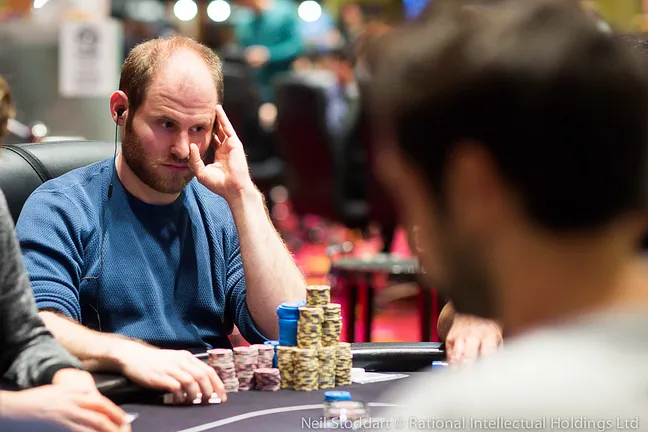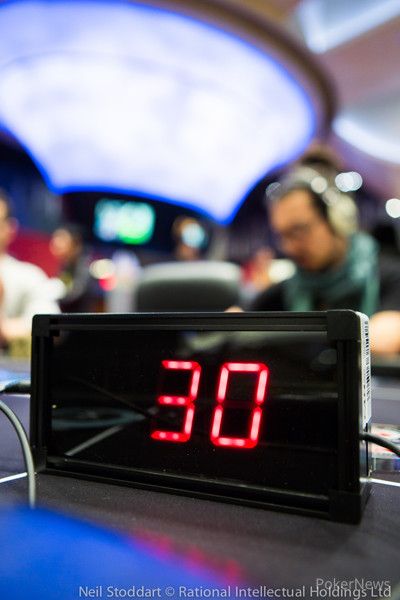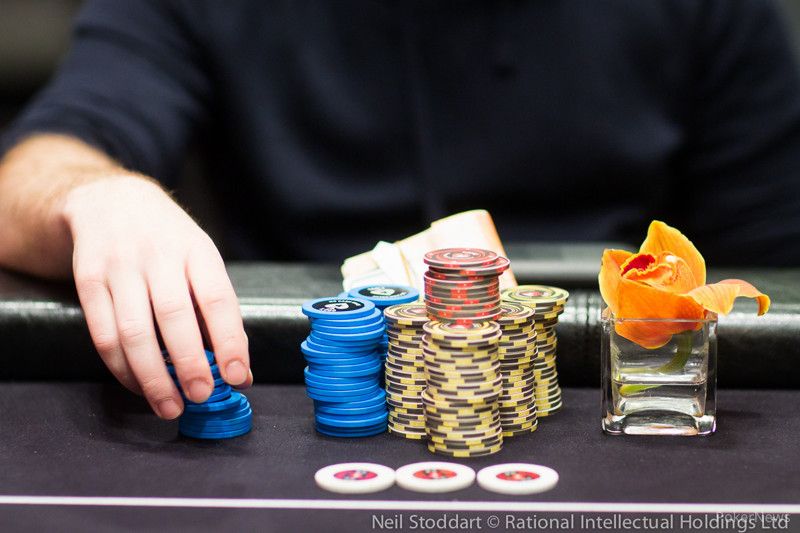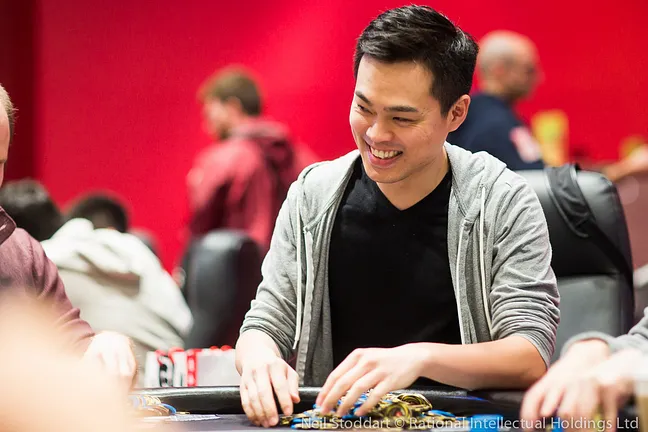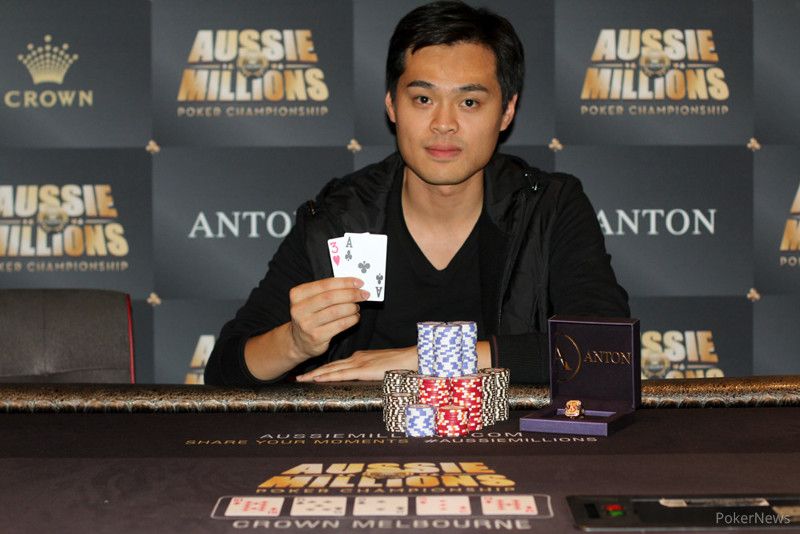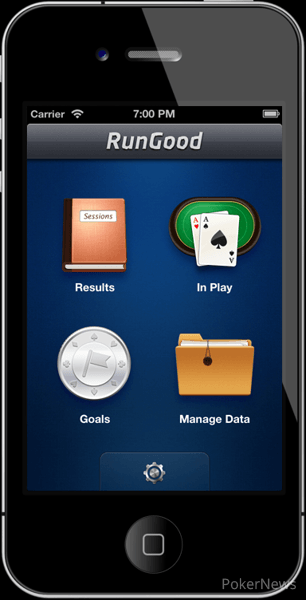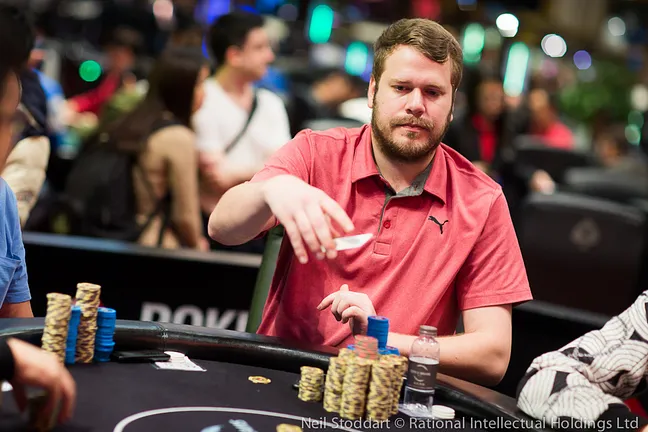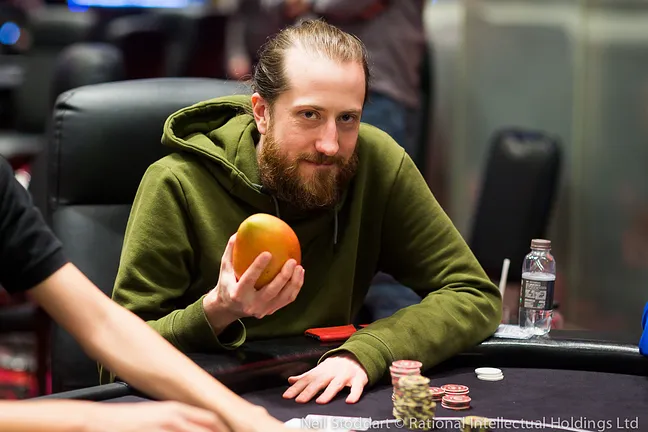

While Australia Day was back in January no one appears to have told the poker players this fact and the antipodeans have been marking their mark here in Macau.
After beginning Saturday’s HK$82,400 event in pole position Melbourne’s Mike Addamo did not relinquish his stranglehold on the tournament, winning one of the coveted gold Pokerstars Championship trophies and the sizable HK$1,936,500 (~US$249,200) first prize.
Another Australian who acquitted himself admirably was Michael Egan who bagged up an impressive 1,067,000 in chips at the end of Day 1 of the PokerStars Championship Macau Super High Roller – the only player to break the six-figure mark.
Canada’s Sam Greenwood continued the run of form that saw him take second place in the PokerStars Championship Panama $10,000 High Roller last month, finishing the Day close behind Egan with 976,000 in chips.
China’s Yuan Li (893,000), Australia’s Daniel Neilson (891,000) and Taiwan’s James En Ning Chen (830,000) round out the top five.
Fresh from his sixth place finish in the HK$82,400 Single Re-Entry Dan Smith played his rush to finish as the sixth largest stack with 803,000. German wunderkind Fedor Holz also joined the party, buying in towards the end of Day 1 and earning a quick double to power through and finish the day with 790,000.
In total, an impressive 62 unique players entered poker’s gladiatorial high-rolling arena to do battle in this big buy-in tournament and the action was fast and frantic from the get-go with several players opting to rail against fate and the hands they were dealt, spawning 17 re-entries so far.
With unlimited re-entries available until registration closes at 12:30pm local time (GMT+7) when play resumes the sky really is the limit for those with deep enough pockets.
Once again the live coverage will be in the capable hands of the PokerStars blog team as they keep you updated with all the tournament thrills and spills as the action unfolds.
PokerNews will be focusing on the buzz surrounding the PokerStars Championships Macau debut as well as focusing on the big stories that inevitably unfold at these high-caliber events.
For those wishing to check out the highlights from Day 1 you can check out the following links below:
PokerStars Championship Debuts in Macau!
PokerStars Macau Is In the Center of the Asian Poker Boom
The Hong Kong Players Taking Macau by Storm
Michael Egan Finds Late Surge to Bag Day 1 Chip Lead
Here's how the Super High Roller is stacking up so far:
| Player | Country | Chip Count |
|---|---|---|
| Michael Egan | Australia | 1067000 |
| Sam Greenwood | Canada | 976000 |
| Yuan Li | China | 893000 |
| Daniel Neilson | Australia | 891000 |
| James En Ning Chen | Taiwan | 830000 |
| Dan Smith | USA | 803000 |
| Fedor Holz | Germany | 790000 |
| Stevan Chew | Australia | 753000 |
| Isaac Haxton | USA | 739000 |
| Behzad Ahadpour | St. Kitts and Nevis | 719000 |
| Yang Wang | China | 651000 |
| Guodong Sun | China | 608000 |
| Cyril Andre | France | 595000 |
| Troy Quenneville | Canada | 536000 |
| Bertrand "ElkY" Grospellier | France | 531000 |
| Mikita Badziakouski | Belarus | 519000 |
| Ye Zhang | China | 470000 |
| Wayne Yap | Singapore | 455000 |
| Ollie Price | UK | 395000 |
| Leo Yah Ho Cheng | Canada | 382000 |
| Ahadpour Khanghah | Iran | 380000 |
| Philipp Gruissem | Germany | 350000 |
| Steve O'Dwyer | Ireland | 350000 |
| Sergio Aido | Spain | 328000 |
| Kahle Burns | Australia | 326000 |
| Manig Loeser | Germany | 326000 |
| Sylvain Loosli | France | 318000 |
| Ying Seng Tang | Hong Kong | 315000 |
| Shan Huang | China | 300000 |
| Stanley Choi | Hong Kong | 295000 |
| Qiang Zhao | China | 270000 |
| Hendrik Latz | Germany | 248000 |
| Daniel Dvoress | Canada | 240000 |
| Adrian Attenborough | Australia | 197000 |
| JC Alvarado | Mexico | 192000 |
| Timothy Adams | Canada | 191000 |
| Aymon Hata | UK | 189000 |
| Jean-Noel Thorel | France | 175000 |
| Martin Kozlov | Australia | 162000 |
| Rafael Moraes | Brazil | 161000 |
| Guang Pu Lu | Canada | 151000 |
| Nick Petrangelo | USA | 142000 |
| Mustapha Kanit | Italy | 140000 |
| David Peters | USA | 137000 |
| Zuo Wang | China | 134000 |
| Fabian Quoss | Germany | 112000 |
| Ali Reza Fatehi | Iran | 65000 |


